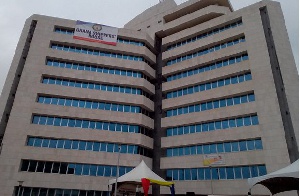The Ghana Shippers Authority has held a sensitization workshop for haulage drivers to discuss road safety along Ghana’s corridor.
Noncompliance to road safety regulations has led to accidents, delays and extortions on the country’s transit corridor.
The Chief Executive Officer of theGhana Shippers Authority Benonita Bismarck said the authority in line with its mandate of promoting and protecting the interest of shippers is collaborating with stakeholders of the trade and transport industry to make it efficient and competitive.
“The Republic of Ghana has a compliance with international agreements, protocols and conventions offered its territory as a corridor for its landlocked neighbours to transit their goods to and from these countries. Following from this, significant efforts have been made to facilitate transit trade and made its corridor one of the most competitive and attractive in the sub-region,” she stated.
The General Manager for Marketing and Corporate Affairs of the Ghana Ports and Harbours Authority, Esther Gyebi-Donkor emphasized that the transit trade development requires the commitment and involvement of all stakeholders along the corridor including the Ghana Ports and Harbours Authority, the Customs Division of the Ghana Revenue Authority, Freight Forwarders, Shipping Lines, Ghana Highways Authority, National Road Safety Commission, Ghana Police Service, District and Municipal Authorities and Insurance Companies.
She said, GPHA has worked very hard with other stakeholders in growing the transit trade but there is more room for improvement especially in road incidents involving trucks carrying transit cargo.
“Transit cargo through the ports of Ghana, which is Tema and Takoradi grew from 1,027,787 tonnes in 2016 to 1,249,336 in 2017 – a 22% increase. Another critical component of efficient knowledge system is compliance with laid down conventions both at the country and sub-regional level”, she highlighted.
The Planning Officer of the Accra Commission for the National Road Safety Commission, Charles Oduro Kwarteng said the commission records not less than 11,400 crashes yearly with the heavy duty vehicles being 3rd victims compared to saloon cars and mini-buses.
Business News of Wednesday, 28 February 2018
Source: EOP

















